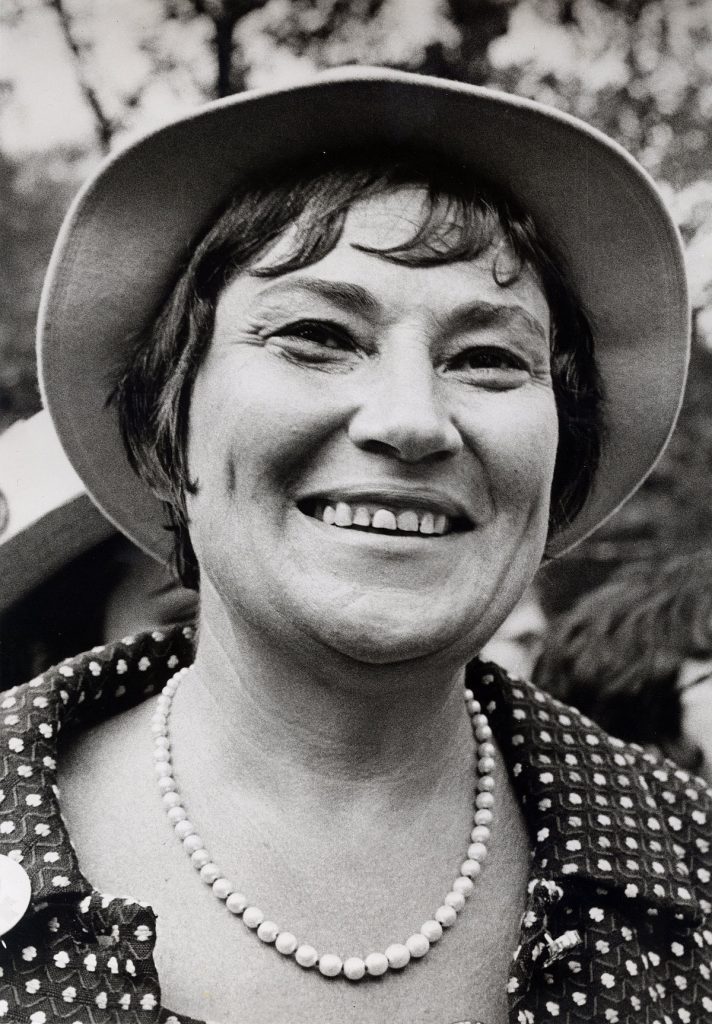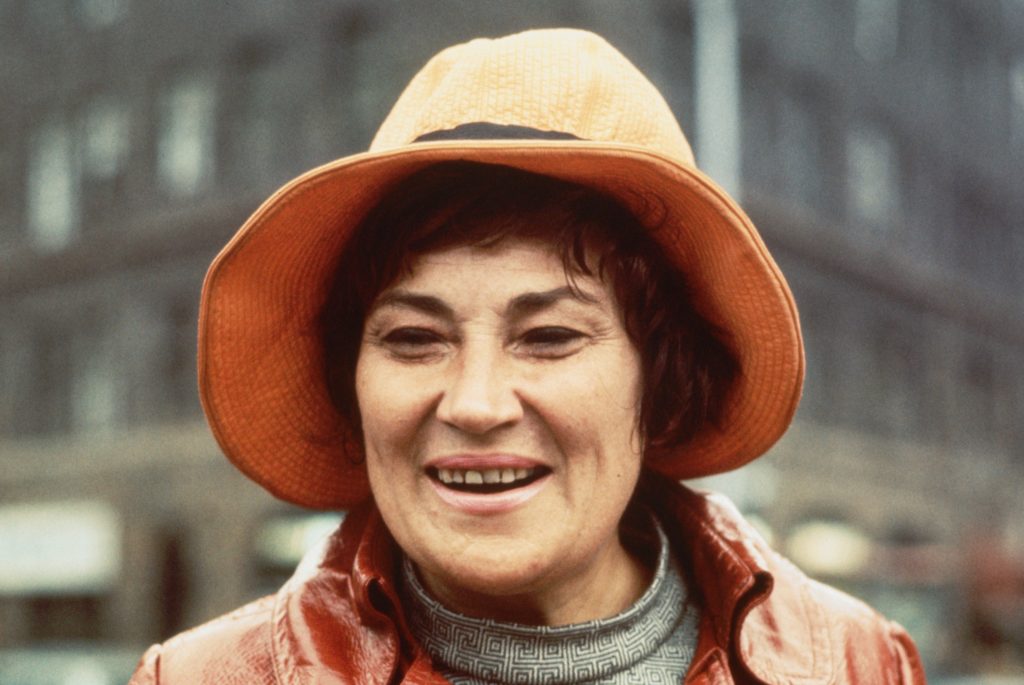Bella Abzug, or “Battling Bella” as she was called, was a lawyer, social activist, leader of the Women’s Rights Movement, and member of the U.S. House of Representatives from New York. A Columbia University law school graduate, Abzug became involved in the women’s rights movement alongside the antinuclear and peace movements. She, with many other prominent feminists of the era, founded the National Women’s Political Caucus in 1971.
On July 24, 1920, Bella Savitzky was born in New York City to Emanuel and Esther Savitzky, Jewish immigrants from Russia. Her father ran a market and her mother was the homemaker. Growing up, Bella was very competitive and beat everyone in every competition she took part in.
At thirteen, Savitzky’s father died. She defied the Orthodox tradition of the father’s sons reciting the Kaddish and would go to the synagogue every single morning for a year to recite the prayer. Savitzky graduated from high school before studying at Hunter College and then the City University of New York. Later on, Bella Savitzky attended Columbia University and earned a degree in law in 1947.
For many years, Bella Abzug (she had married Martin Abzug in 1944), worked as a lawyer. She was admitted to the New York Bar shortly after graduating from law school and began practicing at a local firm, mostly on labor law. At the time, it was very uncommon for women to study law. Abzug began to take on cases in the South regarding civil rights. In 1945, Willie McGee was a black man convicted of raping a white woman and was then sentenced to death by an all white jury. Abzug appealed the case, but lost it and he was executed.
In 1961, Abzug helped in organizing the Women Strike for Peace. Nicknamed Battling Bella, Abzug later was on President Nixon’s master list of political opponents when she was a representative due to her political stands.
Bella Abzug, a Democrat, ran for Congress in 1970 against Leonard Farbstein, who had been a representative for fourteen years. She defeated Farbstein in the Democratic primary. In the general election, Abzug also beat Barry Farber. Her district was eliminated in 1972, so that year she ran against William Fitts Ryan in the democratic primary. Though Ryan was terribly ill, he defeated her. Though shortly before the general election, he died, and Abzug took his spot after also defeating his widow, who also went up against her in the general election. In 1974, Abzug was easily reelected.
Abzug was one of the first members of Congress who supported gay rights. She introduced the first gay rights bill in federal government along with Representative Ed Koch. Along with that, as the chair of the Subcommittee on Government Information and Individual Rights, she also chaired historic hearings regarding secrecy in the government. Her colleagues in the house voted her as the third most influential member of the house in the U.S. News & World Report.
In 1976, Abzug ran for the Senate in 1976, but barely lost to Daniel Patrick Moynihan. Though she won by less than one percent, all the news coverage was on her three male opponents, and never on her.
Abzug, though having left Congress, was still a high profile figure. In 1977, she ran for Mayor of New York City, but lost. She also tried twice more, once in 1978 and then in 1986, for the House, but lost. Abzug wrote the book Bella: Ms. Abzug Goes to Washington and with Mim Kelber, The Gender Gap. She continued advocating for women’s rights and came up with many plans for equality for women in not just the U.S., but also the whole world.
In the early 1990s, Abzug and her friend and colleague, Mim Kelber, founded the Women’s Environment and Development Organization, or WEDO. Abzug was the organization’s president and was very influential at United Nations conferences. She worked hard to empower women all over the world.
Continuing her women’s rights work, Abzug went on to develop the Women’s Caucus for women members of the New York City Council. It also used new ideas to get more women involved in UN Conferences and analyzed documents, proposed gender-sensitive policies, and lobbied for women’s rights at UN conferences.
In her last years, Abzug was confined to a wheelchair, though that did not stop her from her busy life of advocacy and travelling. Until her death, she led WEDO and her final speech was given before the UN in March of 1998.
On March 31, 1998, seventy-seven year old Bella Abzug, who had suffered from breast cancer before developing heart disease, after complications from an open heart surgery. Abzug was interred in Queens, New York at the Old Mount Carmel Cemetery and inducted into the Women’s Hall of Fame.



